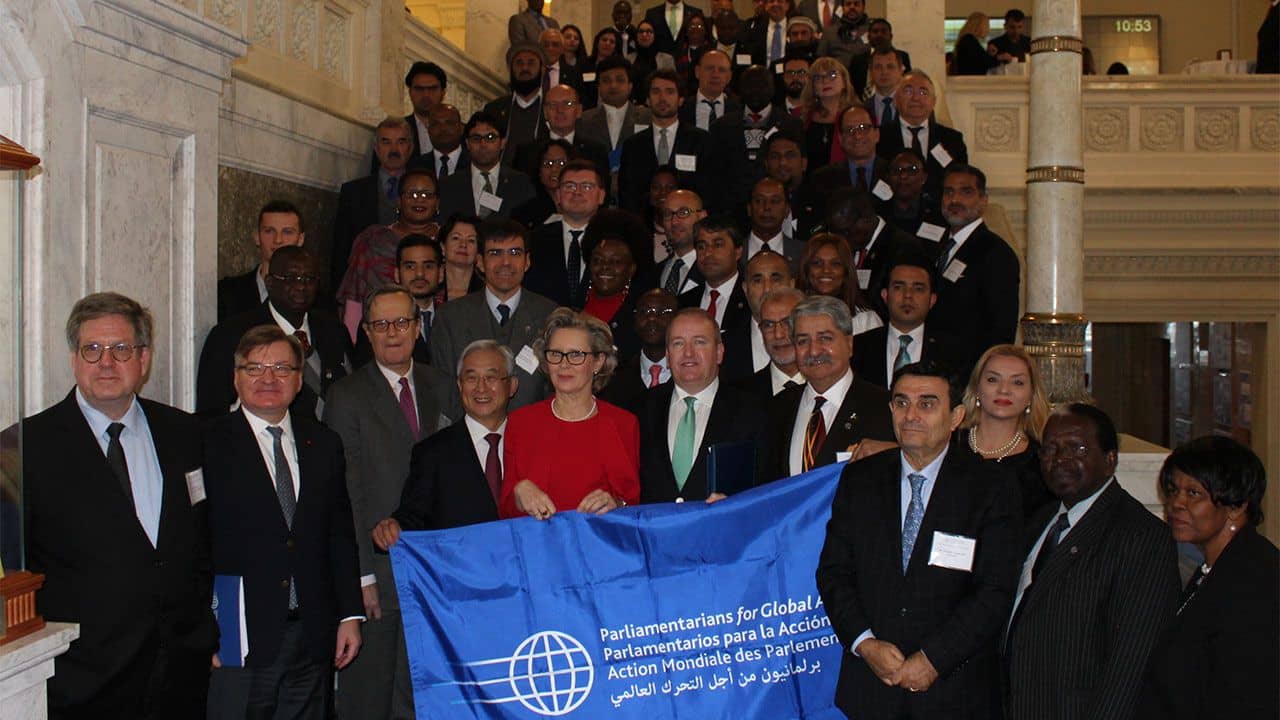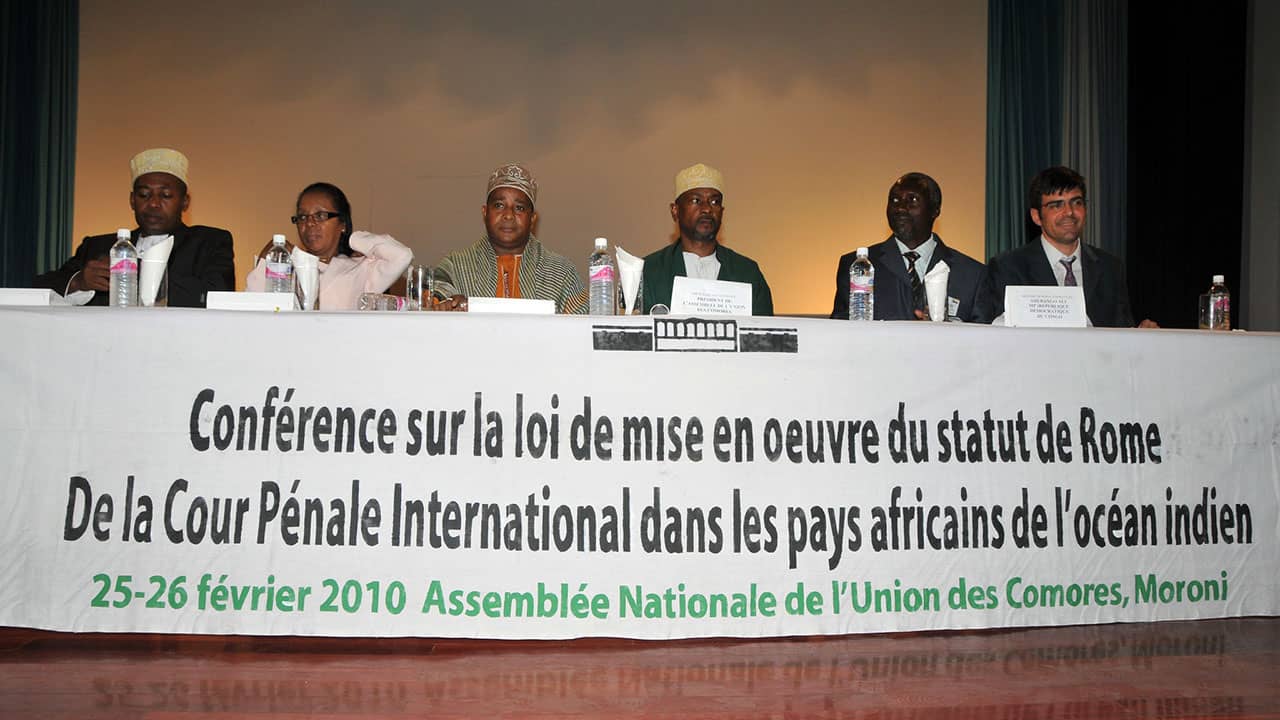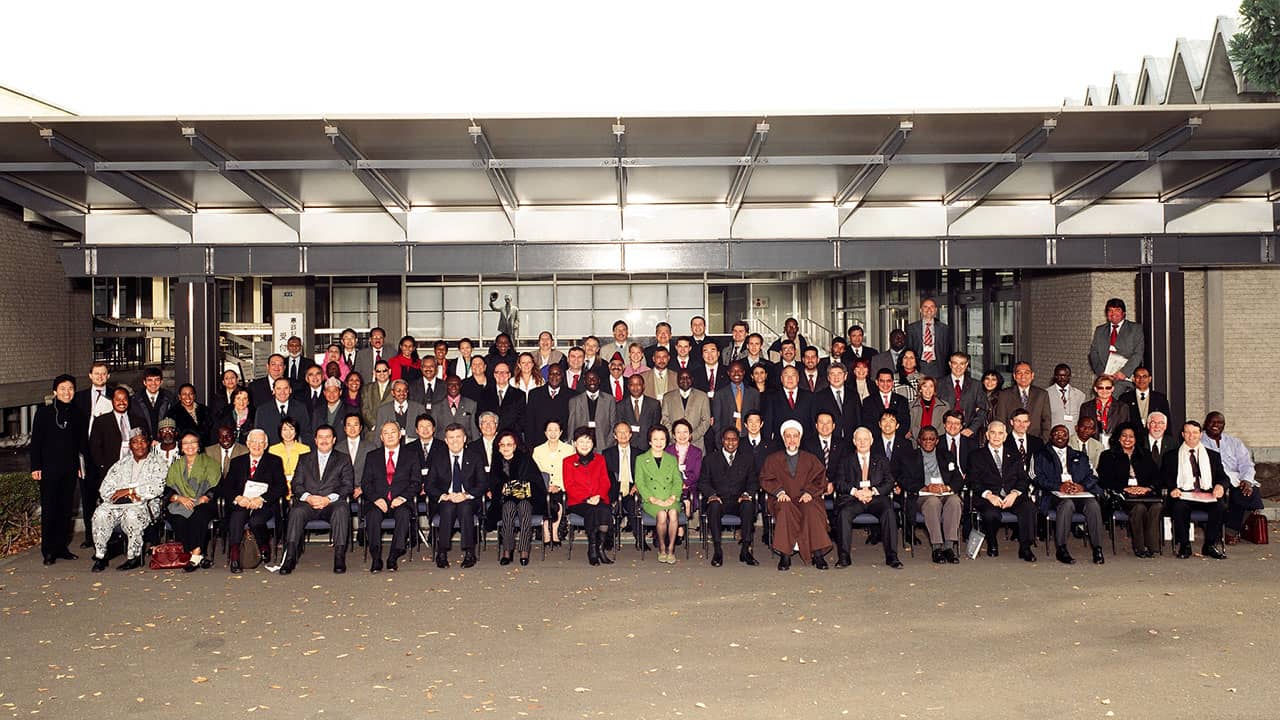PGA has been working with Members of parliament from India since the founding of PGA in 1979. These efforts have been intensified from 1995-1996 when PGA had a President who was a Member of Parliament from India. The PGA National Group India is currently under the Chairmanship of Hon. Tariq Anwar, MP.
Currently, India is one of PGA’s target countries for the Campaign for the Rome Statute of the ICC. The PGA ILHR team is working very closely with the Indian National Group consisting of over 20 Members of Parliament from India to promote the accession of India to the Rome Statute of the ICC.
Rome Statute
India has not yet signed the Rome Statute, but attended the Conference in 1998
Kampala Amendments of 2010
Although, India attended the Kampala Conference in 2012, India has not ratified the Kampala Amendments to the Rome Statute.
Status on the domestic implementation of the Rome Statute
India has not enacted any implementing legislation.
Progress and PGA Action
On 28 Nov. 2014, the PGA India National Group held its Annual meeting at the presence of the PGA Senior Program Officer. The National Group discussed at this meeting how to move forward on the important agenda items for PGA Members in India namely to accede to the Rome Statute of the ICC and to sign and ratify the Arms Trade Treaty.
The meeting was opened by the speech of the Chair Hon. Tariq Anwar who welcomed members and held a moment of silence for Honorable Murli Deora who very sadly passed away this week. Honorable Deora has held the position of President of PGA from 1995- 1996. His values and commitments to the vision of PGA for a more equitable, safe and democratic world, were clear and strong, as is his legacy within PGA. In his speech as outgoing PGA President in 1996 he had stated that:
“One of PGA's roles should be to reinforce the principle of accountability that must exist between the international community, the elected representatives and the citizens who have an interest in how their government develops economic and social policy for their nation, in what has become a global economy.”
With repeating this words, Chair of the PGA India National Group Hon. Shri Tariq Anwar encouraged underlined that it is important for India’s leadership role in the region to remain strong within PGA. He welcomed new participants who all joined PGA. He gave the floor to longstanding PGA Member and former Chair Hon. Natchiappan, who had raised the question in parliament why government was hesitant to ratify the Rome Statute but had not received a concrete answer. Hon. Natchiappan encouraged other members that it is important for India to ratify the Rome Statute and also the Arms Trade Treaty and to encourage other members to talk to ministry of external affairs about this.
The Chair of the PGA National Group Hon. Tariq Anwar (MP) and PGA Members Hon. Natchiappan, (MP); Hon. JD. Seelam (MP), Hon. Mahendra Prasad (MP) then participated at the opening of the Seminar organized by the Center of International Law and Research (CILRAP) on the Historical Origins of International Criminal Law.
Hon. EMS Natchiappan, Chair of the Committee Law and Justice, was given the honor to open this 2-day Seminar in his capacity as President of the Indian Society of International Law and Member of PGA. In his speech to the over 90 participants from all regions of the world he made it very clear that PGA Members in the parliament of India are strongly committed to join the Rome Statute System by acceding to the ICC and that this an important and outstanding decision for India to be taken.
In 2006, PGA Members (including the Chair of the Law Committee of the Parliament, Hon. Dr. E. M. Sudarsana Natchiappan MP) as well as former MP (and PGA Executive Committee Member) Dr. Margaret Alva sitting in the Central Committee of the I.N.C. Party chaired by Ms. Sonia Ghandi expressed strong support for the ICC. The most important action on the ICC carried out in India by PGA was undertaken by Dr. Herta Däubler-Gmelin MP, President of the Human Rights Committee of the German Bundestag, who devised with the PGA Staff interventions on the occasion of her trip to India in March 2006.
Human Rights Council Universal Periodic Review:
India has been reviewed in the 13th session of the UPR in 2012 (to see the recommendations issued by the United Nations, click here).
For more information on PGA’s ILHR Program in India please contact PGA Senior Program Officer Ms. Leyla Nikjou at









